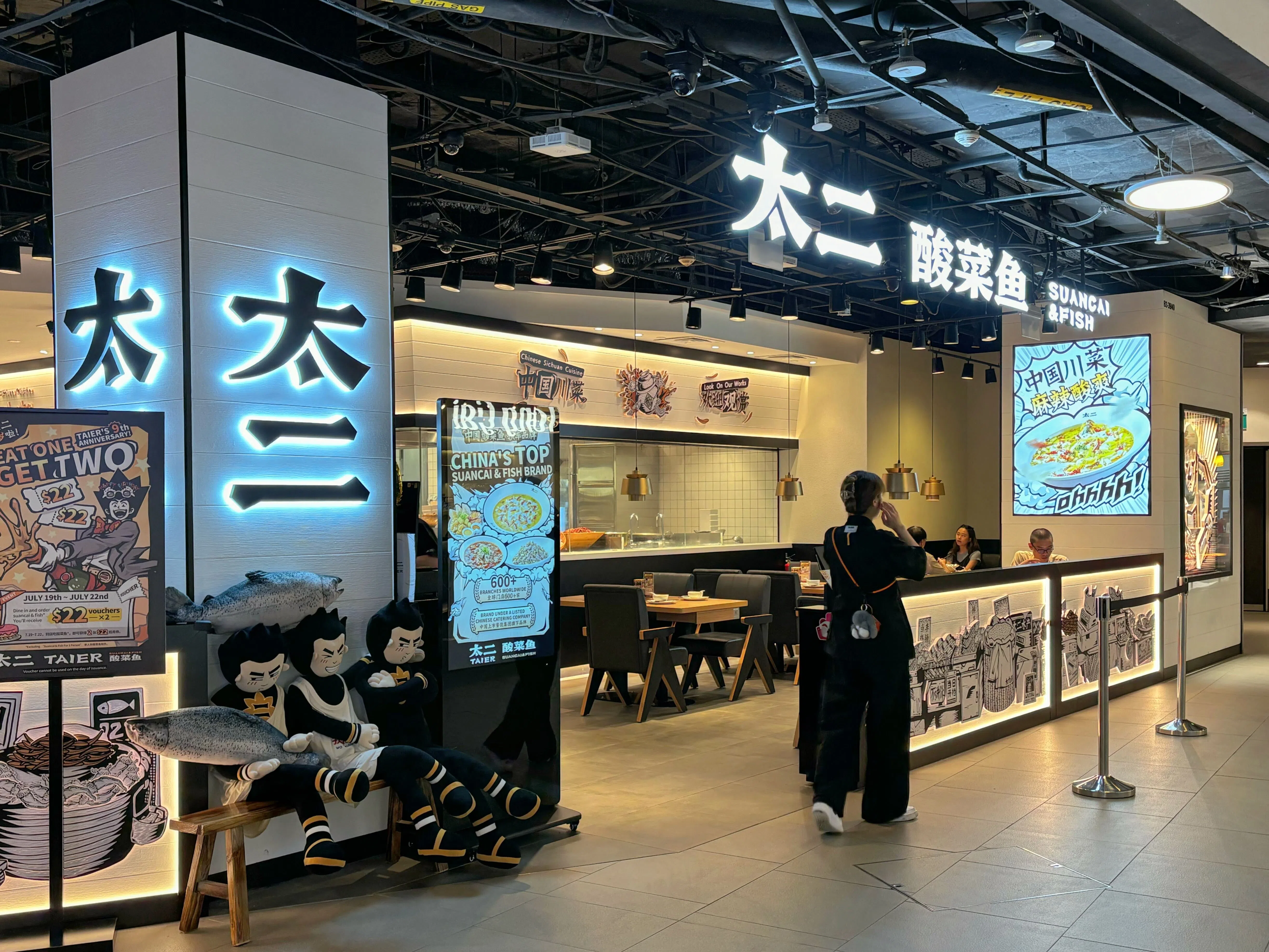SINGAPORE consumers are seeing a new wave of Chinese food and beverage (F&B) brands entering the local market as the Republic gains popularity as a point of entry to the region.
Such businesses consider Singapore an important first stop as building a strong brand presence here earns them an international reputation, which helps them expand, industry players from China told The Business Times.
As at end-June, there were about 184 outlets run by 32 Chinese F&B brands in Singapore. Roughly nine in 10 of these outlets have opened since the Covid-19 pandemic, said consultancy Momentum Works.
They are either directly operated by a Chinese brand owner, via a brand franchise such as ice cream store Mixue, or through joint ventures with local F&B operators.
In South-east Asia, around 7,400 outlets were opened by 40 F&B entrants between 2021 and 2023, with Chinese brands making up more than half of that number, a joint report by Momentum Works and productivity app Lark released on Tuesday (Jul 23) showed.
Chinese coffee chain Luckin Coffee, which in 2023 expanded to Singapore as its first overseas stop, opened 32 outlets in the market within a year. This is on top of a rising number of outlets by popular Chinese F&B brands such as Zhang Liang Mala Tang, Hey Tea and Tai Er.
BT in your inbox
Start and end each day with the latest news stories and analyses delivered straight to your inbox.
Wemedia Consulting director Felix Ren, who helps Chinese F&B brands enter the Singapore market, noted a rising number of inquiries from such businesses. He has hosted about 40 brands’ business visits to the Republic so far this year, compared with about 20 brands last year.
Advisory firms such as Wemedia help prospective entrants with applications to relevant government bodies, and advise on areas such as operational strategies, site selection, and human resources management.
Singapore as springboard
These F&B players are keen on Singapore for its financial and political stability, and as a springboard for their expansion into the region and beyond.
“International markets care more about successful restaurant operations in Hong Kong or Singapore as compared to the number of outlets in mainland China because of China’s sheer market size,” Jason Chen, the international general manager of Tai Er, told BT in Mandarin.
Tai Er, known for its sauerkraut fish, operates six restaurants in Singapore, including a grilled fish restaurant called Beautiful Lai. The brand’s parent company is Jiumaojiu International Holdings, which currently has four F&B brands with about 700 outlets in China.
Li Jianggan, chief executive officer of Momentum Works, noted that Singapore has become a testing ground for Chinese brands to experiment with how they could operate in other markets.
“Singapore also has a good repository of Chinese-speaking business partners they could work with, making the attempt easier,” he said, adding that mainstream consumers are becoming increasingly receptive towards dishes such as mala and sauerkraut fish.
Traction after Covid
Chinese F&B brands have been expanding overseas for years. One of the early movers was Haidilao, which opened its first overseas outlet in Singapore in 2012. The hotpot restaurant now has 20 outlets in the country.
Its international entity, Super Hi, is listed on both the Hong Kong Exchange and Nasdaq, with a market capitalisation of about US$1.1 billion as at Jul 19. In the first quarter of 2024, Super Hi was operating 119 outlets globally, with about 60 per cent in Asean.
However, overseas expansion by Chinese F&B players – especially to Singapore – picked up speed only in 2022 after the pandemic, said Ren of Wemedia. So far, the F&B consultancy has helped four Chinese brands enter the Singapore market, with another eight incoming.
One of the firm’s early clients is Tai Er, which has established a strong brand presence since it opened its first outlet at Jewel Changi Airport in 2021, in the midst of the Covid-19 troubles.
Tai Er’s Chen noted that it was a challenging time for businesses, but it also offered room for growth. “The F&B competition at the time was not as fierce as now, although the market environment then was not great either,” he said.
“Covid made these companies realise the importance of hedging risks related to such black swan events, hence the plan to enter overseas markets,” Ren told BT.
In any case, for a mature brand under a leading F&B company such as Jiumaojiu in China, overseas expansion is usually the next step in its growth strategy.
“We already stand out from the intense F&B competition in China so we are confident in our management capabilities to enter the global markets,” said Chen. “The international arena might also offer more advanced ideas to help us grow.”
Continued economic weakness
The weakness of the Chinese economy in the pandemic’s aftermath also pushed F&B businesses to seek out other avenues for growth.
Gao Chiju, the owner of Sichuan restaurant Chef Lam’s, said his first outlet in Singapore will open at Guoco Tower in October. His original expansion plans in China were put on hold because of Covid.
“Pressures in the China market are mainly why (Chinese) F&B brands are heading overseas,” he told BT in Mandarin.
China’s economic recovery has been sputtering, with data released on Jul 15 showing a weaker-than-expected Q2 growth of 4.7 per cent year on year, amid a protracted property slump.
The country’s GDP growth was also the slowest in five quarters, and well below the target of about 5 per cent for 2024 overall.
June retail sales also missed analysts’ estimates, registering the slowest monthly growth since December 2022, suggesting sluggish consumer sentiment.
“Business owners prefer steadily growing markets for expansion. They would thus be more cautious about opening more outlets given the current market conditions in China,” said Wemedia’s Ren.
More to come
Besides the upcoming opening of Chef Lam’s, beverage brand Yes Lemon, seafood hotpot restaurant Chamoon Hot Pot and claypot dish eatery Guan Ji will also open their first outlets in Singapore within the next six months, said Ren.
Wemedia is also helping four more brands from China at the planning stage. Among them, well-known Chinese fusion cuisine chain Green Tea Restaurant is in the process of selecting a suitable site for its first outlet.
Meanwhile, Chagee is re-entering Singapore with its first outlet opening in August, noted Momentum Works’ Li. The tea brand had exited the market in January.
OCBC chief economist Selena Ling said that the influx of Chinese F&B brands reflects a growing Chinese community in Singapore, as well as a diversity of consumer taste buds.
She added: “Younger consumers are generally quick to adopt and adapt to new trends. The new additions add vibrancy to Singapore’s F&B scene and should be positive in terms of economic spinoffs through increased investments and job creation, but the economic impact should not be overstated at this juncture.”



